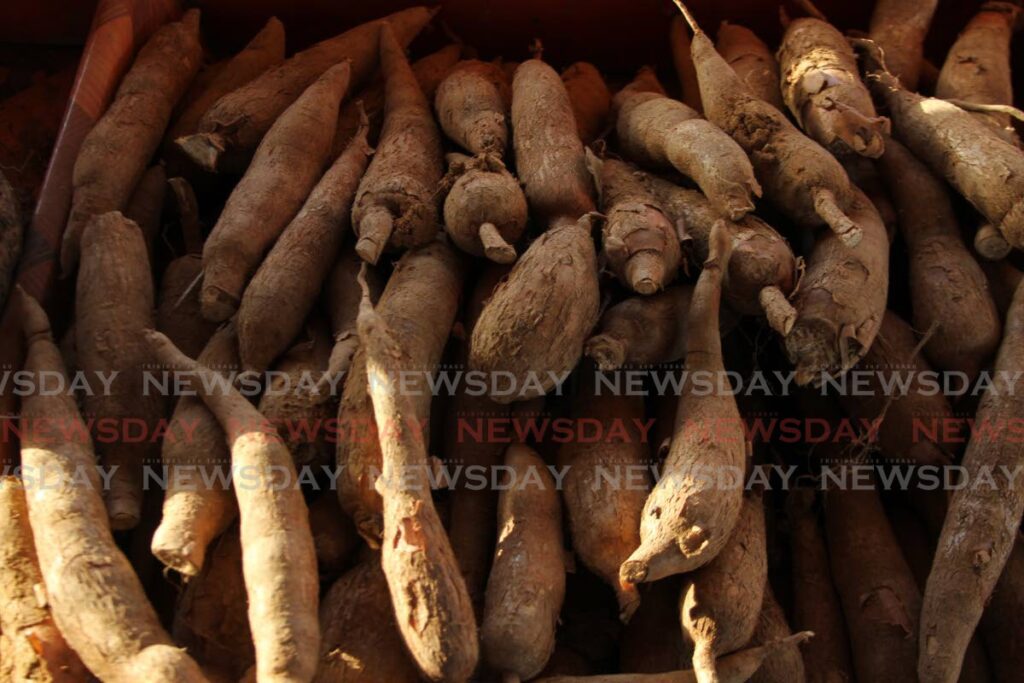Food sustainability

After spending 17 years on television with Caribbean Flavours, I created a new online series called Indigenous Bites. The objective was to dig deeper into our local cuisine and increase public awareness of our locally-produced foods and the delights they can provide from a culinary perspective.
I felt our local foods were being overshadowed by the imported packaged foods. The series began in late 2017 and during that time I visited many farms on this island, speaking to vegetable, fruit and root-crop farmers, fresh-water (tilapia) farmers, cocoa farmers, coffee farmers and agro-processors to name a few.
It is empowering to understand the level of commitment our farmers have for their very challenging jobs of providing fresh food to feed our population, given the harsh realities of weather changes, pest control and praedial larceny.
Recently with the rising food prices, the food sustainability issue is now top of mind for the country, I dug a little deeper and discovered the initiative by Atlantic LNG through their Lend Programme.

This programme aids people living in the south-western peninsula to pivot away from earning an income from fossil fuels and more towards agriculture and agro-processing.
This initiative has had much success with farmers and food processors producing the likes of alternative flours, virgin coconut oil, world-class honey, sustainable fishing, dried and salted fish. These are some of the food producers I had the good fortune to highlight on Indigenous Bites. I am sure there are many more.
The conversations regarding sustainability are always positive from these farmers and food producers.
They are all certain if we as a nation really put our minds to it, can enjoy the benefits of food sustainability. There could be enough resources and enough interested people to enable this objective.
Why then don’t we see more of these processed local foods/produce available to us on our supermarket shelves?
The food products are all high-quality and packaged to high standards, some may be of the opinion that the prices may be high. However, artisanal products usually are.
Supermarket regulations are not particularly easy when it comes to selling any product processed locally, there is a qualifying process and then the issue of haggling prices, which does not always come out in favour for the local supplier. Hence the reason why, it is not profitable for these local producers to ply their trade on a broad scale.
Maybe the Government can intervene and give some type of concessions to the producers to enable them to bring their products to market more efficiently. This will encourage usage, and in turn increase demand and supply.
In the long run, these same food producers will enjoy better returns for their products, enabling them to make their production more efficient and eventually enjoy better profits.
We as a nation can then enjoy the benefits of locally-produced, high-quality food items which will drive us closer to food sustainability.
I am very much in favour of our local food items, I find them to be of quite a high quality. I am worried, however, that many of these producers are looking to the export market for greener pastures which will leave us in dire straits.
Check out my recipes today, these are all made with 100 per cent local products.

Hot and spicy pigeon pea pilaf
1 cup pigeon peas (gungo peas)
1 cup local white or brown rice
1 cup coconut milk
1½ cups broth or water
salt and freshly-ground black pepper to taste
1 onion finely chopped
2 cloves garlic, chopped
1 hot pepper, seeded and chopped or to taste
1 pimento pepper, chopped
1 tbs coconut oil
1 tbs chadon beni or cilantro
Preheat a saute pan or saucepan, add oil and heat, add onion, garlic, and peppers, saute until fragrant.
Season with salt and black pepper.
Add the pigeon peas and stir, add the rice and toss to combine, add coconut milk and water or broth, stir to combine.
Bring to a boil, cover and simmer for 20 minutes until rice is tender. Taste and adjust seasonings. Fluff with a fork. Sprinkle with chadon beni
Serves 4 to 6
For a lighter side, omit coconut milk and add one half cup more broth.
Grilled cassava with lime garlic sauce
2 lbs cassava, boiled and drained
1 tbs chopped garlic
1⁄3 cup coconut oil
2 tbs lime juice
salt and pepper to taste
2 tbs chopped chadon beni
Remove inner vein from cassava cut into 2-inch lengths and place in a shallow baking dish.
Heat oil in a small saucepan, add garlic and lime, add salt and pepper.
Saute for a few minutes more, do not brown garlic.
Add chadon beni, stir and pour mixture onto cassava, covering all the cassava with the pieces.
Preheat broiler and place cassava under broiler.
Broil until hot and edges are browned.
Serves 4 to 6
rahamut@gmail.com


Comments
"Food sustainability"